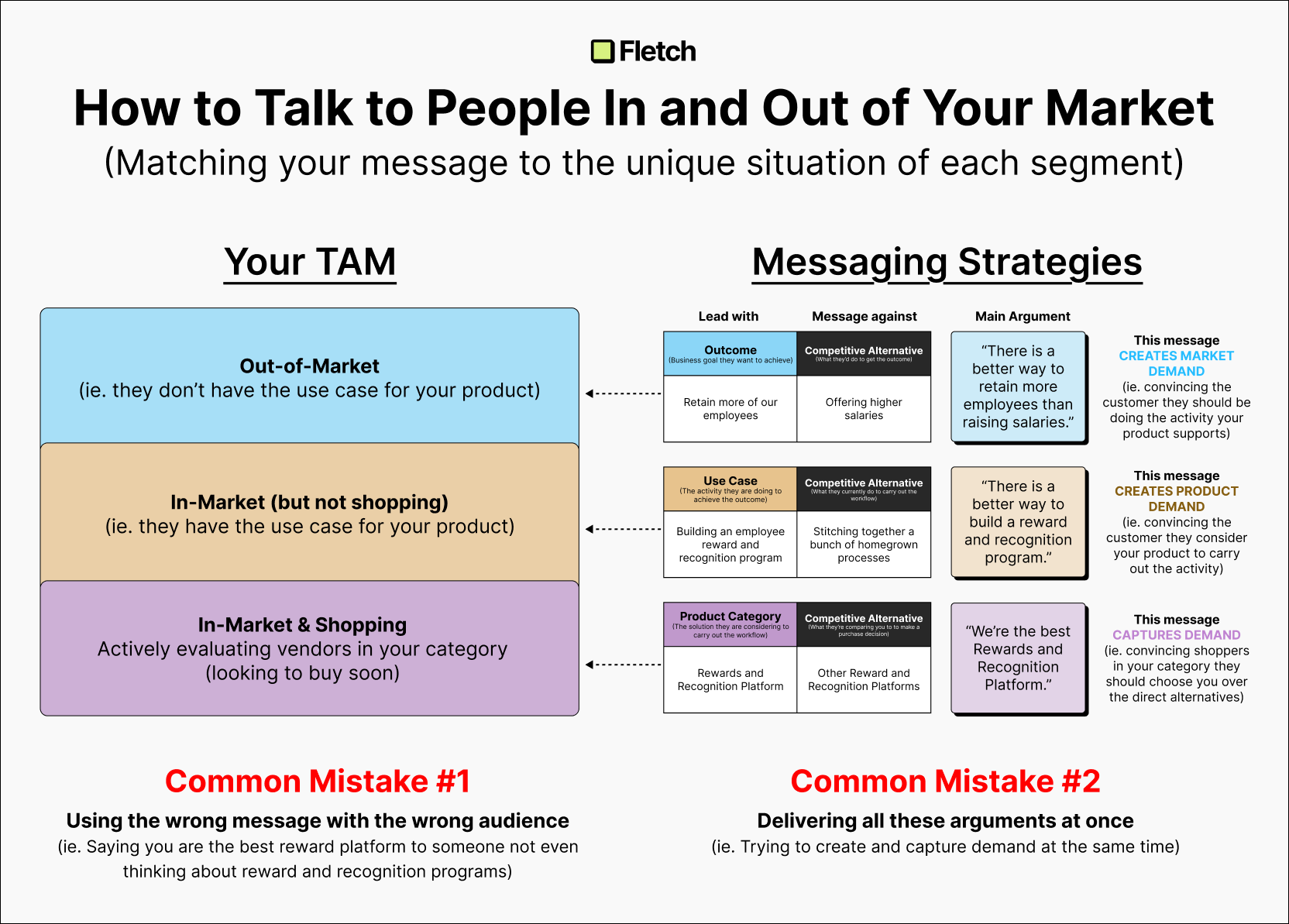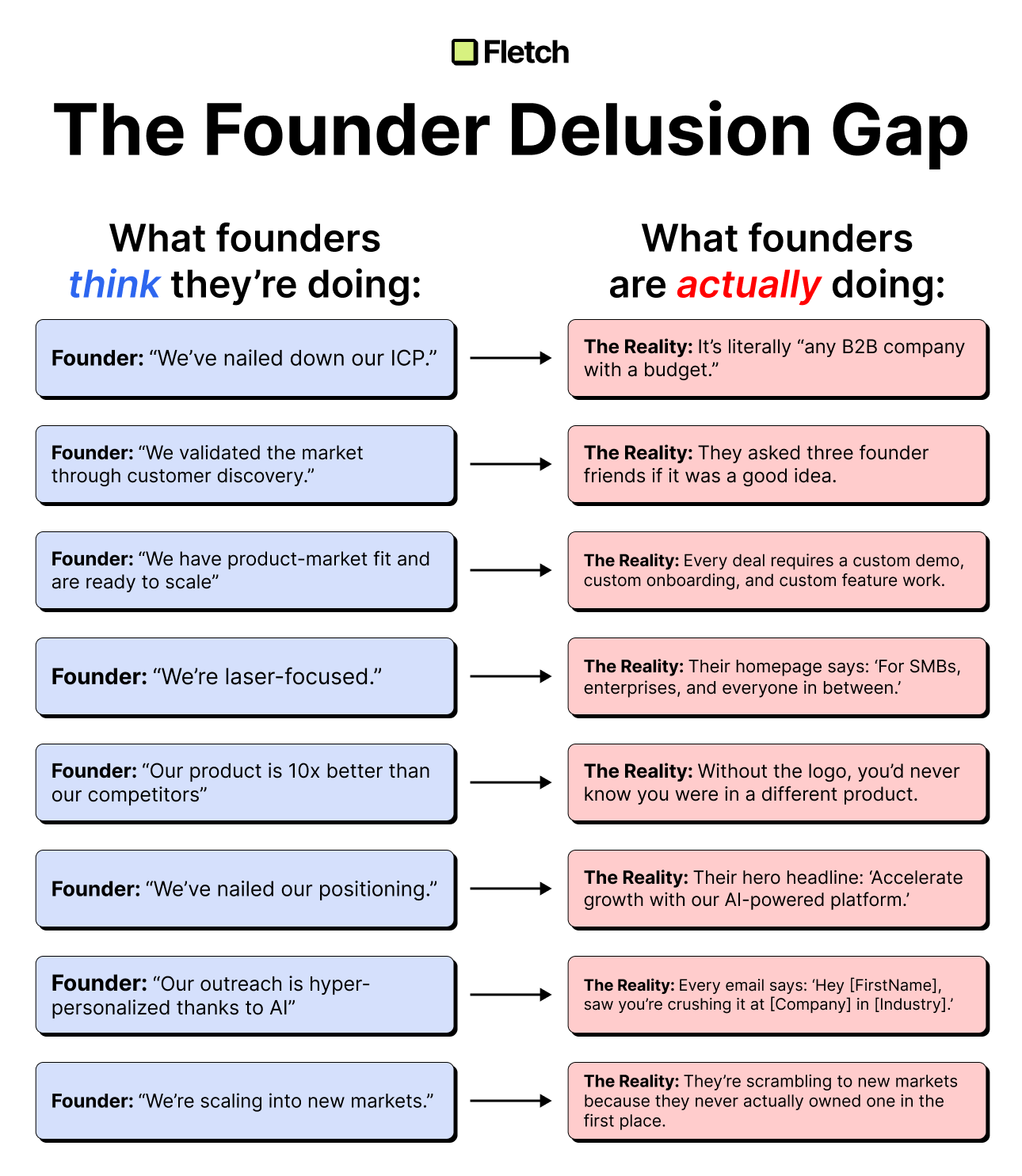Positioning for B2B is different than B2C


Positioning business software is not the same as positioning shoes.
Everybody knows what a shoe is.
So you’re likely not going to be like “Yo! This is a shoe!”
When people buy shoes from a specific brand, there’s usually a more intangible quality that makes them choose one company over another.
→ What does that brand stand for?
→ What does it make them feel?
→ What will that purchase say about the purchaser?
All these abstract concepts are what end up winning the day for B2C.
As a result, consumer companies invest A LOT of money into building mental associations between items like shoes, cars, vacuums, and hotels… and abstract concepts like “adventure,” “safety,” and “innovation.”
You buy Patagonia because you want to be seen as someone who is adventurous and outdoorsy (or because you want to signal that you’re a VC).
B2B is very different… especially when it comes to software.
Software is inherently nebulous.
It can do so many different things and you can’t really “see” it (other than looking at screens and dashboards).
Yet, there’s an extremely concrete fact about B2B software:
All B2B software is workflow software.
Why?
Because workers buy business software that helps them do their work.
And so the most important thing for a business when evaluating a piece of software is:
→ will this software support the workflows I need it to support?
When it comes to “owning” a place in business people’s minds, the B2B software company needs to build an incredibly powerful mental association with the most important workflows the company supports (or the exact category you belong to).
It’s why most people still think “CRM” when it comes to Salesforce (and not any of the 20+ rebrands they’ve done that have sought to connect the business with some intangible word or phrase).
This is why many brand (and rebrand) projects for B2B are inherently flawed.
If you have not yet claimed a specific category or workflow in the minds of your customers, then you should not be wasting any time, effort, or money on trying to own an abstract concept in your prospects’ minds.
If you asked the same question about YOUR b2b startup…
…what would people say?
Would they know exactly what category you are in?
Or what main workflow you support?
If the answer is no… then you likely have a very difficult time ahead of you.

Ben Wilentz
Founder, Stealth Startup




